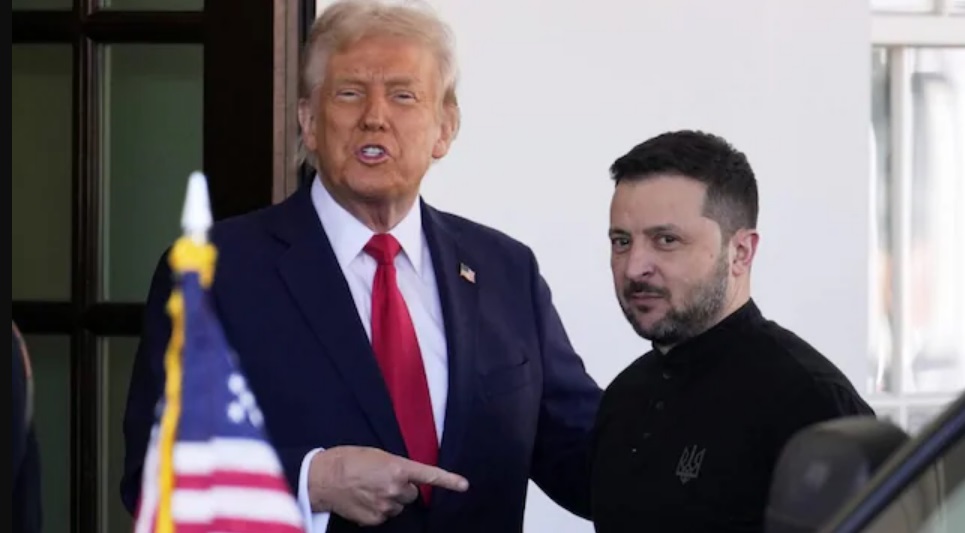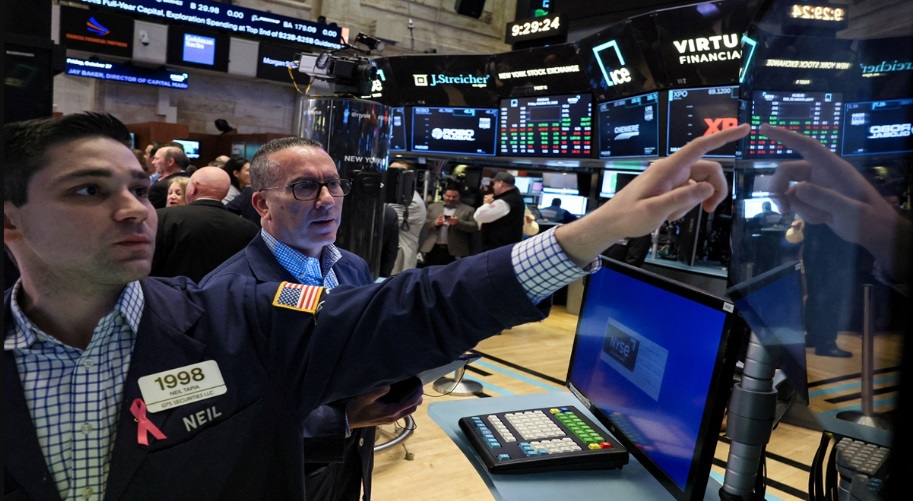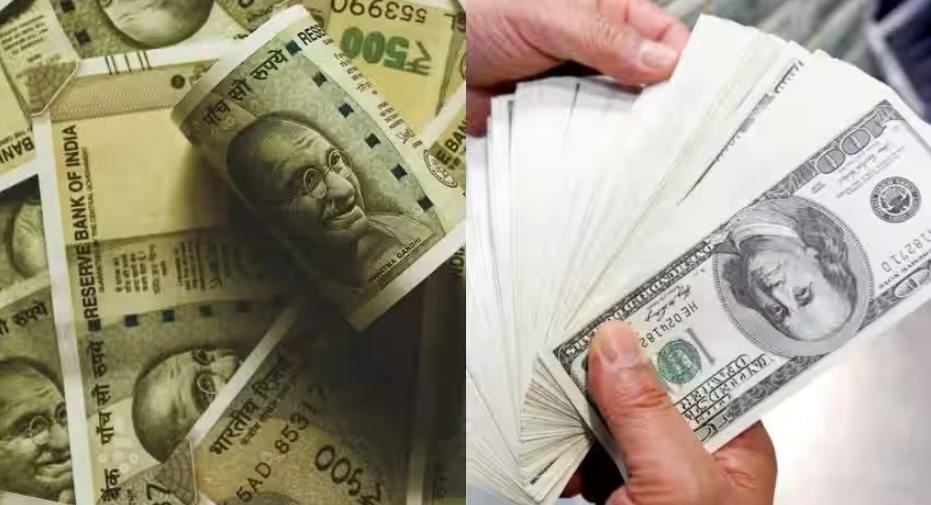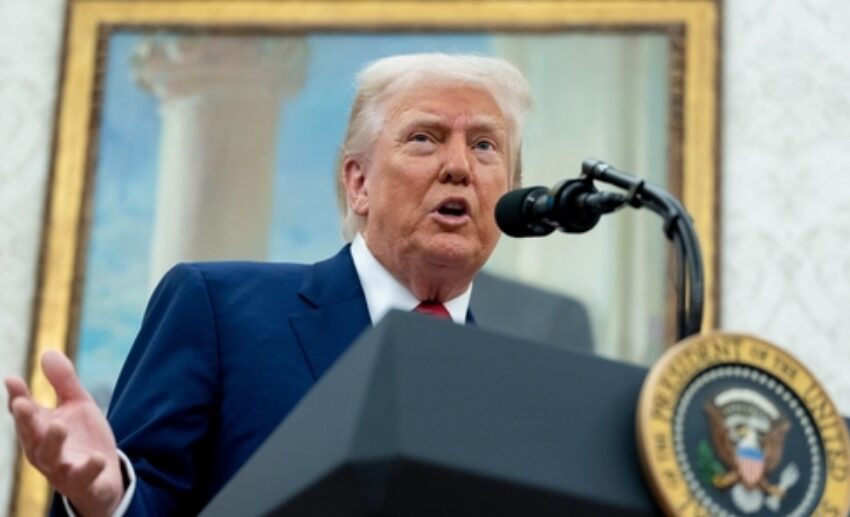
Trump-Era Tariffs to Stay in Place Following U.S. Court Ruling
The U.S. Court of Appeals for the Federal Circuit in Washington didn’t explain its decision but said that the people who filed the case must respond by June 5, and the government must reply by June 9.
Washington: A federal appeals court temporarily reinstated the most sweeping of President Donald Trump’s tariffs on Thursday, a day after a trade court had ruled Trump had exceeded his authority in imposing the duties and ordered an immediate block on them.
The United States Court of Appeals for the Federal Circuit in Washington said it was pausing the lower court’s ruling to consider the government’s appeal, and ordered the plaintiffs in the cases to respond by June 5 and the administration by June 9.
On Wednesday, the U.S. Court of International Trade made a surprise decision that could have stopped or delayed the start of Trump’s “Liberation Day” tariffs on imports from most U.S. trading partners, including extra tariffs on goods from Canada, Mexico, and China. This was connected to Trump’s claim that Canada, Mexico, and China were helping fentanyl get into the U.S.
The trade court’s three-judge panel ruled that the Constitution gave Congress, not the president, the power to levy taxes and tariffs, and that the president had exceeded his authority by invoking the International Emergency Economic Powers Act, a law intended to address threats during national emergencies.
Top officials from the Trump administration said they weren’t discouraged by the trade court’s decision. They believed they would win on appeal or use other presidential powers to make sure the tariffs still happen.
Trump has used the threat of charging U.S. importers costly tariffs for goods from almost every other country in the world as leverage in international trade talks, a strategy the trade court’s ruling would upend. The trade court ruling had not interfered with any negotiations with top trading partners that are scheduled in the days ahead, Trump’s administration said.
U.S. trading partners “are coming to us in good faith and trying to complete the deals before the 90-day pause ends,” Treasury Secretary Scott Bessent said in a Fox News interview. “So we’ve seen no change in their attitude in the past 48 hours. In fact I have a very large Japanese delegation coming to my office first thing tomorrow morning.”
Many U.S. trading partners offered careful responses. The British government said the trade court’s ruling was a domestic matter for the U.S. administration and noted it was “only the first stage of legal proceedings.” Both Germany and the European Commission said they could not comment on the decision.
Canadian Prime Minister Mark Carney welcomed the trade court’s finding, saying it was “consistent with Canada’s longstanding position” that Trump’s tariffs were unlawful.
Financial markets, which have whipsawed wildly in response to every twist and turn in Trump’s chaotic trade war, had reacted with cautious optimism to the trade court ruling, though gains in stocks on Thursday were largely limited by expectations that the court’s ruling faced a potentially lengthy appeals process.
Indeed, analysts said broad uncertainty remained regarding the future of Trump’s tariffs, which have cost companies more than $34 billion in lost sales and higher costs, according to a Reuters analysis.
Certain tariffs on specific products like steel, aluminum, and cars were put in place by Trump for national security reasons, using different legal powers. These tariffs were not affected by the court’s decision.
The Liberty Justice Center, the nonprofit group representing five small businesses that sued over the tariffs, said the appeals court’s temporary stay was a procedural step.
Jeffrey Schwab, senior counsel for the center, said the appeals court would ultimately agree with the small businesses that faced irreparable harm of “the loss of critical suppliers and customers, forced and costly changes to established supply chains, and, most seriously, a direct threat to the very survival of these businesses.”
Earlier on Thursday, a different federal court ruled that Trump went beyond his legal powers by using the International Emergency Economic Powers Act to set “reciprocal tariffs” of at least 10% on goods from most U.S. trading partners. The court also said he overreached by placing separate 25% tariffs on goods from Canada, Mexico, and China in connection with fentanyl.
That ruling was much narrower, however, and the relief order stopping the tariffs applied only to the toy company that brought the case. The administration has appealed that ruling as well.
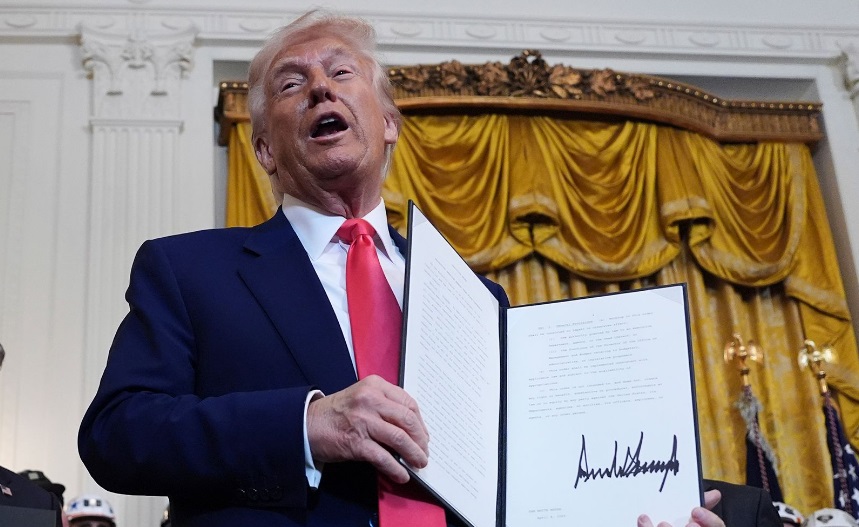
UNCERTAINTY PERSISTS
Following a market revolt after his major tariff announcement on April 2, Trump paused most import duties for 90 days and said he would hammer out bilateral deals with trade partners.
Aside from a recent deal with Britain, other agreements have been hard to reach. Analysts say the trade court’s ruling on the tariffs and the uncertainty of the appeals process might make countries like Japan hesitant to move forward with any new deals.
“Assuming that an appeal does not succeed in the next few days, the main win is time to prepare, and also a cap on the breadth of tariffs – which can’t exceed 15% for the time being,” said George Lagarias, chief economist at Forvis Mazars international advisers.
The trade court ruling would have lowered the overall effective U.S. tariff rate to about 6%, but the appellate court’s emergency stay means it will remain at about 15%, according to estimates from Oxford Research. That is the level it has been since Trump earlier this month struck a temporary truce that reduced punishing levies on Chinese goods until late summer. By contrast, the effective tariff rate had been between 2% and 3% before Trump returned to office in January.
Trump’s trade war has caused problems for companies that make things like luxury handbags, sneakers, home appliances, and cars, because the cost of raw materials has gone up.
Drinks company Diageo and automakers General Motors and Ford are among those that have abandoned forecasts for the year ahead.
Foreign companies like Honda, Campari, Roche, and Novartis have said they might move some operations or grow their business in the U.S. to reduce the impact of the tariffs.



